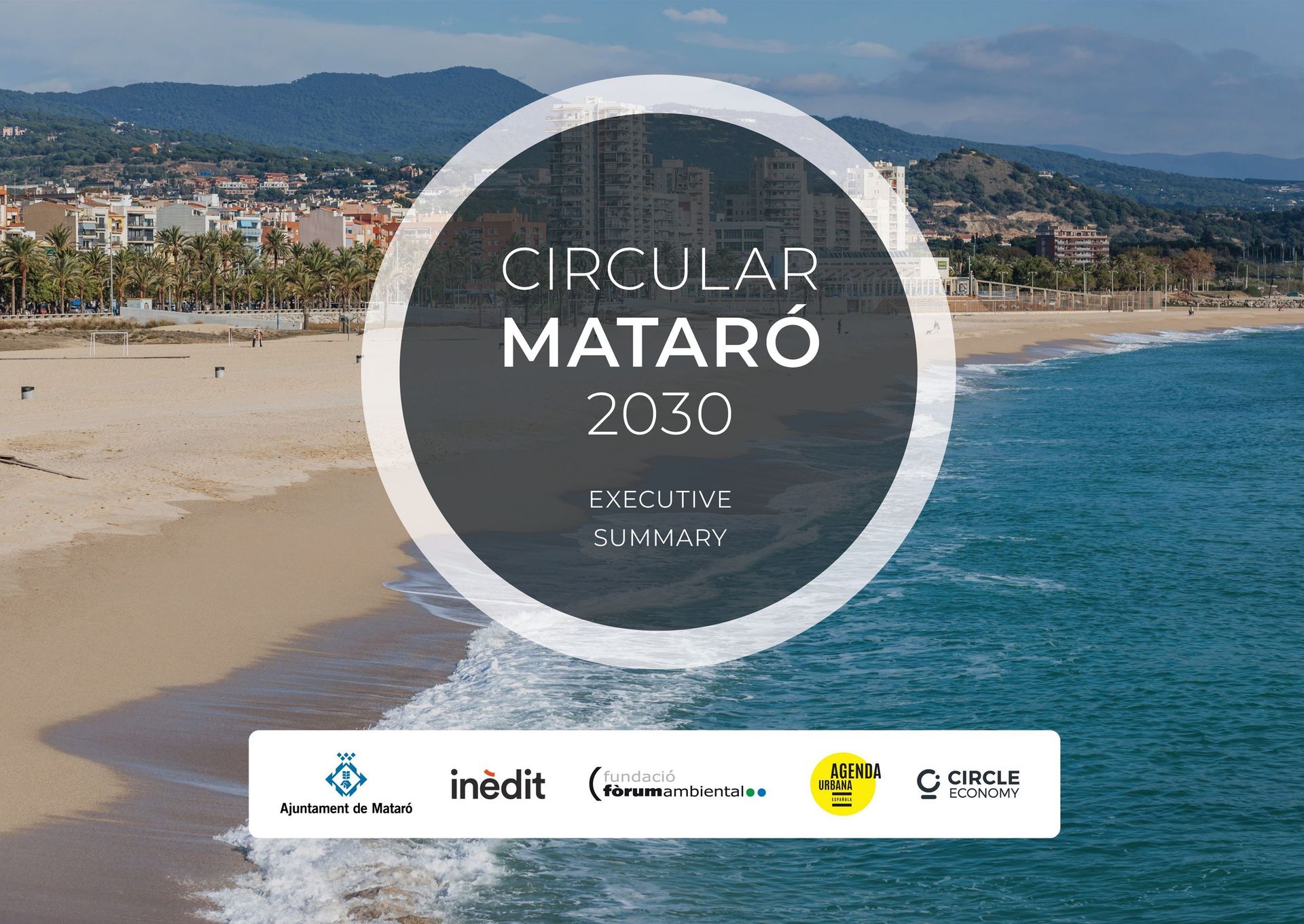Mataró’s circular journey: From ambition to strategy
Circle Economy partnered with the Spanish city of Mataró to co-create Circular Mataró, a strategy for circular transformation.
Real-world results: What changed in Mataró
The city’s circular performance was assessed, and priority value chains for action were identified.
Sector-specific KPIs and governance mechanisms were put in place to track and steer progress.Circular Library Network secured €750,000 in pre-seed investment and grants to scale community-based sharing of household goods.
Mataró’s 2030 vision, circular strategy, and first action plan were developed.Tehdassaari Nokia Incubator Hub raised €350,000 to launch a circular innovation hub on a historic Finnish industrial site.
The foundation was laid for the city’s Urban Agenda, contributing directly to the creation of its Circular Strategy 2030.
The city adopted ambitious targets: a 30% reduction in material consumption and a 50% reduction in household food waste by 2030.
Plans were set in motion for the Circular Park, which will open in 2026 and feature a ‘library of things’, repair services, second-hand and scrap stores, and circular economy education.
The gap: A vision without a plan
Mataró had a strong ambition to embrace the circular economy, but it lacked a clear action plan to bring this ambition to life. Without an evidence-based strategy, measurable targets, or governance mechanisms, the city risked falling short of its goals.
What we delivered: A vision without a plan
We worked hand-in-hand with Mataró to design Circular Mataró, a strategy grounded in material flow analysis and co-created with local stakeholders. Our work provided the city with clear KPIs, a practical action plan, and long-term governance structures to guide implementation. The result: a robust framework that connects ambition with action and sets the city on course for circular transformation.

Mataró’s story shows how a clear roadmap can help cities move from vision to measurable impact. Ready to shape your city’s circular future?


